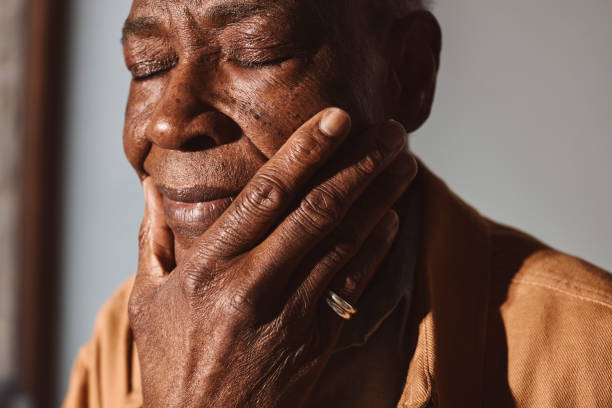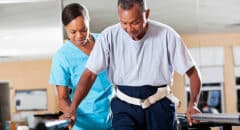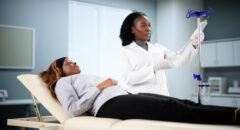
If you or a loved one has recently had a stroke, it can be a jarring, scary experience. After being taken care of by a healthcare professional or at the hospital, the experience doesn’t end there. Coming back to the world after recovering from a stroke is a journey that can bring about a myriad of emotional and physical effects.
The impacts of having a stroke can be profound—understanding the challenges that lie ahead and knowing what to expect can help you navigate life after stroke. Let’s dive into some of the ways you can ease your transition back into everyday life.
Emotional effects
Traumatic, alarming experiences such as having a stroke can be overwhelming. You might be feeling scared, frustrated, angry or depressed when coming to terms with what has happened. Everyone is different—how you feel could vary depending on the day and you may not fully process your situation until days, weeks or months after having a stroke.
It's important to acknowledge and express how you’re feeling and seek support from friends, family, or professionals, such as therapists or support groups. Letting your emotions build up and stay buried can make matters worse for your overall health. Building a strong support system can provide a vital source of encouragement and understanding during this challenging time, as well as give you a sense of hope and resiliency.
It may take some time before you feel like yourself but have compassion and patience. You will heal in time if you take the appropriate preventative measures as prescribed by your healthcare professionals.
RELATED: Life After Stroke: 5 Self-Care Tips
Physical effects
A stroke may result in various impairments depending on the area of the brain affected. You could have weakness or paralysis on one side of the body, difficulty with balance and/or coordination, trouble with speech and language, and fatigue.
Partaking in rehabilitation is an important aspect of the recovery process because you’re learning to regain lost functions. You may have to slowly, with self-love and understanding, adapt to new ways of performing daily tasks.
Recovery process
At the beginning of your recovery, you might be required to partake in intensive physical, occupational, and speech therapy. These therapies focus on improving mobility, rebuilding strength, and enhancing/repairing communication skills.
It can feel overwhelming to have to rebuild parts of yourself that were once simple and normal to you. It’s okay to feel frustrated and angry. Have patience as you begin—progress might feel slow and it may feel like you’re not making headway at first, but celebrating the small victories and accomplishments can help you stay motivated.
You may also need to prioritize your medication management, lifestyle changes, and preventive measures. Your healthcare provider may prescribe you medications, such as blood thinners, to help reduce the risk of future strokes.
Other preventative measures may help you recover and prevent future strokes, such as:
- Adopting a heart-healthy diet
- Managing high blood pleasure, high cholesterol, diabetes or atrial fibrillation (if applicable)
- Attending follow-up doctors’ visits and having regular check-ups
- Following your medication guidelines and instructions
- Engaging in regular exercise within one's abilities
- Quitting smoking (if applicable)
RELATED: Chances of Walking after a Stroke: How Long Does it Take?
Moving into your new world
As you ease back into your reality, you may need to adjust your roles and responsibilities, as well as set realistic expectations as you embark on your road to recovery.
You may want to modify aspects of your home to increase safety and accessibility. You may want to consider having handrails installed, removing tripping hazards, or using assistive devices. Occupational therapists can assist you with adjusting to these new changes and provide ideas and support.
Returning to work or engaging in social activities should be approached with care and honesty. It's important to communicate openly with employers, colleagues, and friends about any limitations or accommodations you may need.
Take your time first and see how you feel after getting back into work and socializing. Gradually increase engagement, and stay mindful of how you’re feeling. As you dip back into your normal activities, you can start to feel more confident and hopeful.
Stay strong
Recovering from a stroke and adjusting to your new reality is undoubtedly challenging—it takes strength, courage, and accepting help from others. With determination, support, and the right resources, you can start to regain your circumstances, sit with the discomfort and adapt to your new environment.
Remember, you won’t be in this place forever—each journey is unique, but you can find joy and fulfillment in your life again. While the recovery process can be difficult, you can feel empowered to embrace this new reality and live the life you want.









